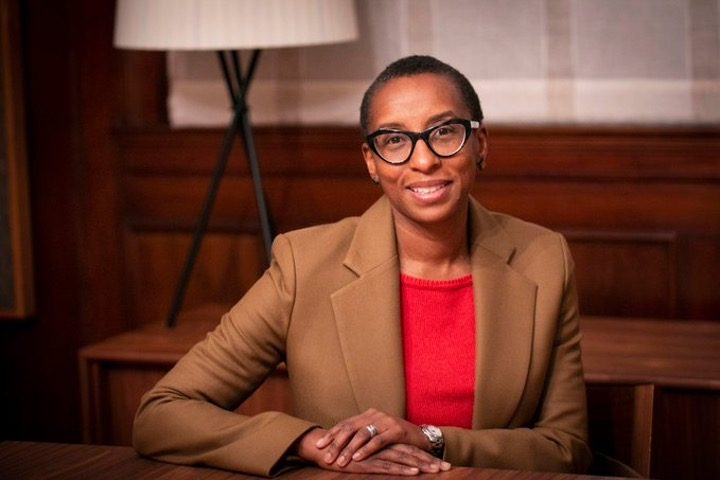
On the heels of the latest revelation that another diversity officer at Harvard University plagiarized her doctoral thesis, the school now faces the unpleasant task of explaining why the search committee that hired former president Claudine Gay — forced to resign after her plagiarism was revealed — did not check her scholarship.
The latest blow to the university’s waning credibility appeared in the school newspaper, the Crimson.
The newspaper also reported that the school overlooked two more-highly qualified candidates, including the dean of Harvard’s law school.
The Scandal
Aside from improperly vetting Gay, a secondary scandal is the rejection of two apparently brilliant scholars, the Crimson reported:
The committee favored Gay’s administrative expertise during the process, passing over two internal candidates who boasted both administrative experience and far more extensive scholarship credentials: Tomiko Brown-Nagin and John F. Manning….
Brown-Nagin, dean of the Radcliffe Institute for Advanced Study, published two books and won the highest award in American History writing, while Manning, dean of Harvard Law School, argued nine cases before the U.S. Supreme Court and wrote more than 40 legal articles.
Gay was heralded as a brilliant political scientist and successful university administrator upon her selection as Harvard’s president, but her scholarly record was comparatively thin.
Harvard won’t explain why it didn’t review Gay’s work, but an anonymous source did. The hiring panel favored Gay’s “lengthy experience as a senior administrator,” the newspaper reported.
The newspaper also reported that Gay, the university’s first black woman president, landed the top job after “the shortest Harvard presidential search in almost 70 years.” The search committee needed just five months to pick the right candidate for the most important job at the university.
And amazingly, the committee thought Gay was the best of 600 nominees, a risible impossibility. After all, she was obviously less qualified than Manning and Brown-Nagin.
“Though Gay wrote multiple articles on race and politics that have been widely cited, her scholarship was decisively more limited compared to those of Manning and Brown-Nagin,” the Crimson reported.
Problems With Diversity
Just before the Crimson disclosed the failure of the search committee, The City Journal’s Christopher Rufo elaborated on the newspaper’s revelation that yet another diversity officer was nailed for plagiarism in an anonymous complaint.
Shirley Greene, head of the university’s gender equity office, plagiarized other writers more than 40 times in her 2008 dissertation, Converging Frameworks: Examining the Impact of Diversity-Related College Experiences on Racial/Ethnic Identity Development.
Previously, diversity officer the Washington Free Beacon found that Sherri Charleston, Harvard’s chief diversity officer, plagiarized 40 passages for her dissertation.
And before that, Gay was unmasked and forced to resign after the shortest presidential tenure in the school’s history. That seems to be poetic justice for the school, inasmuch as the committee also conducted the shortest presidential search in university history.
As The New American reported when Gay was kept on at the school, The Associated Press found the usual leftist scholar to say that the plagiarism reports were part of a vast right-wing conspiracy. If true, it must be the same one that manufactured the allegations about President Bill Clinton’s amorous monkeyshines with White House intern Monica Lewinsky.
Irene Mulvey, headmistress of the American Association of University Professors, said plagiarism has been “weaponized.”
“There is a right-wing political attack on higher education right now, which feels like an existential threat to the academic freedom that has made American higher education the envy of the world,” Mulvey told AP.
She fretted that “Gay’s departure will put a new strain on college presidents. In addition to their work courting donors, policymakers and alumni, presidents are supposed to protect faculty from interference so they can research unimpeded.”
“For presidents to be taken down like this, it does not bode well for academic freedom,” she told the left-wing wire service. “I think it’ll chill the climate for academic freedom. And it may make university presidents less likely to speak out against this inappropriate interference for fear of losing their jobs or being targeted.”
The clear implication of AP’s report was that plagiarism accusations against Gay were fabricated because they came from “political foes.”
And in its report about the latest scandal, the Crimson noted that the plagiarism accusations against Gay “were first reported by right-wing media outlets.”
True enough. But if left-wing media outlets were doing their job, and if the Harvard search committee and others had done their jobs, then Harvard’s reputation might not have been permanently ruined, for at least three academic frauds would not have been hired.
At this writing, the university has not fired any of them.


